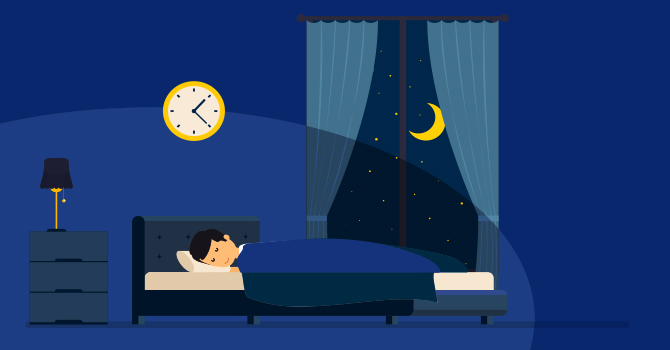The role of sleep and sleep deprivation on healthy behaviors
Apr 04, 2023
This essay explores the role of sleep and sleep deprivation on healthy behaviors. Sleep is one of the most important activities to maintain a healthy lifestyle, as it helps to regulate hormones, control appetite, and restore energy levels. Additionally, research has shown that adequate sleep can reduce stress and anxiety levels, improve moods, enhance memory retrieval and recall abilities, boost creativity, sharpen decision-making processes and increase productivity. However, when we don't get sufficient or quality sleep, our overall health is affected in various ways: physical illnesses such as obesity are more likely to occur; cognitive impairments like decreased attention span or memory loss become more common; poor motor skills become evident; emotional problems related to depression or anxiety may present themselves; social issues like isolation or aggression may arise; and a range of other health risks can occur. Sleep deprivation has been linked to an increase in unhealthy behaviors, including alcohol or drug abuse, smoking, overeating or poor eating habits, physical inactivity, and risk-taking activities. Furthermore, sleep disturbances such as insomnia can lead to further psychological distress resulting from the inability to get enough restful sleep. It is therefore clear that maintaining a healthy sleep pattern is essential for overall well-being.

Healthy sleeping habits include both getting enough quality restorative sleep and avoiding factors which can interfere with normal sleep patterns. Healthy amounts of sleep are generally considered seven to eight hours per night for adults and nine to ten hours for young children and adolescents. Healthy sleeping habits also involve having consistent bed and wake times, avoiding caffeine and other stimulants late in the day, limiting blue light exposure from electronics before bed, creating a relaxing sleep environment that is conducive to restful sleep, establishing calming pre-bedtime rituals like soaking in a warm bath or reading a book, and engaging in some physical activity during the day.
In conclusion, it is clear that getting enough quality sleep is essential for maintaining one's health. Unhealthy behaviors such as drinking alcohol excessively or smoking can interfere with normal sleep patterns, leading to further declines in health. Therefore, it is important to practice healthy sleeping habits and cultivate an environment conducive to restful sleep. Doing so will help improve overall physical and mental health as well as reduce the risks of developing various
